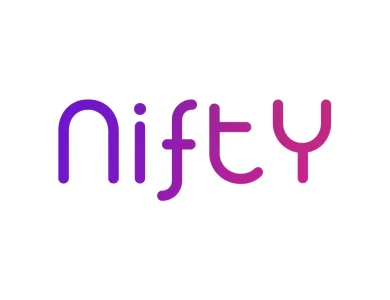It is essential for any e-commerce organization to figure out how to draw in and turn prospects into committed customers. Every sale matters to the owner of a small e-commerce firm, therefore having a strong, cheap e-commerce marketing plan is essential. One abandoned cart might account for a sizable portion of the day’s earnings. In the meanwhile, the number of abandoned carts might result in a considerable loss of potential for all firms.
What steps can companies take to lower cart abandonment rates? Customers abandon shopping carts for a variety of reasons, but SMS marketing for e-commerce businesses could be the solution.
Customers can receive a friendly reminder about the things they’ve forgotten via text message marketing, along with a time-limited discount or a personal recommendation that motivates them to take action. SMS marketing tactics improve the whole shopping experience while providing devoted and new consumers with the push they need to act.
Additionally, SMS marketing for ecommerce may improve client interactions while increasing conversions for ecommerce firms. Learn more about the ecommerce SMS provider approach, how it operates, and how to apply it to increase sales by reading on.
Between interest and action, text message marketing can assist. The inability of customers to check out with the products in their carts sometimes results in abandonment or postponed purchases.
With its immediate reach and directness, SMS marketing for ecommerce enterprises may be a tool to re-engage these consumers and prod them to complete their actions. A well-timed SMS message can offer rewards for checking out, remind customers of the things they expressed interest in, or give them the assurance they need to make a final purchase choice.
Additionally, the personalized nature of SMS messages can boost e-commerce sales by encouraging a more intimate connection, enabling companies to tailor their offerings and establish confidence.
Identifying shopping cart abandonment
When customers add products to their online shopping carts but leave the page before checking out, this behavior is known as cart abandonment. Businesses lose out on sales from abandoned carts because the client clearly intended to make a purchase but was discouraged before or during checkout.
For organizations, the effects of card abandonment may be severe, negatively hurting e-commerce sales and income. High cart abandonment rates indicate a fundamental problem with the online shop or sales procedure.
Unfortunately, a variety of elements, including high shipping charges, requirements for account setup, a convoluted checkout procedure, and security concerns, can result in high cart abandonment rates. Additionally, some consumers could unintentionally utilize the basket as a wishlist.
Industry data points to an average cart abandonment rate of 70% across a range of industries, demonstrating the difficulties faced by e-commerce companies in turning attention into sales. Businesses with more expensive goods or complicated purchase processes often have higher cart abandonment rates, but businesses of all sizes should always look for innovative strategies to lower these figures.
Using SMS campaigns to help with cart recovery
By speaking with customers directly, SMS marketing for e-commerce businesses can help lower cart abandonment rates. Compared to other forms of digital marketing, it offers higher open rates thanks to its immediate and personal touch.
By prompting customers to finish their transactions or providing incentives to do so, text messaging campaigns can be very effective at recovering abandoned carts.
The content of your SMS marketing campaign will determine how successful it is at cart recovery. Personalized offers or product recommendations should be included in messages, which should be succinct but compelling. An efficient message might highlight a product’s advantages, provide a temporary discount, or just remind the customer of the items they still have in their shopping cart.
Timing is equally important. Immediately following a cart abandonment, text messages are a useful reminder, and a follow-up the following day may offer an additional incentive. Sending your customers text messages too frequently or in excess can, however, work against you. Usually, sending 2-3 texts over the course of a few days is advised.
SMS campaigns with personalization and segmentation
Personalized SMS messages will produce better outcomes than generic ones. By addressing SMS subscribers by name or making reference to previous purchases, SMS marketing automation enables you to personalize your SMS messages, which can increase conversion rates. Personalized messaging frequently have a friendlier, more personalised feel than a company’s broad marketing campaign.
Utilizing client data is essential for successful customisation. By studying a customer’s prior purchases, wish list items, and browsing history, businesses may develop messages that connect with consumers and inspire action.
Remember that not every consumer is the same. More targeted and pertinent message is possible when you segment your SMS list based on variables like past purchases, geography, or product preferences. For instance, you might send SMS texts about discounts on dog treats or toys to clients who buy pet items using a list of SMS marketing contacts.
Including SMS in other marketing campaigns
A smooth buying experience requires the collaboration of many marketing platforms. Businesses may attract clients at different phases of the purchasing process by integrating their SMS marketing platform with other marketing strategies and methods.
A timely SMS can prompt a buyer to make a final purchase, while a social media promotion may stir their interest in flash specials. Similar to traditional SEO, e-commerce SEO may draw clients to your website so they can subscribe to SMS marketing messages.
Building trust requires cross-channel marketing consistency. An SMS campaign announcing a deal should be consistent in tone and language if a business advertises it via social media advertisements or email marketing. No matter the marketing medium, clients will always have the same brand experience thanks to this constant message.




